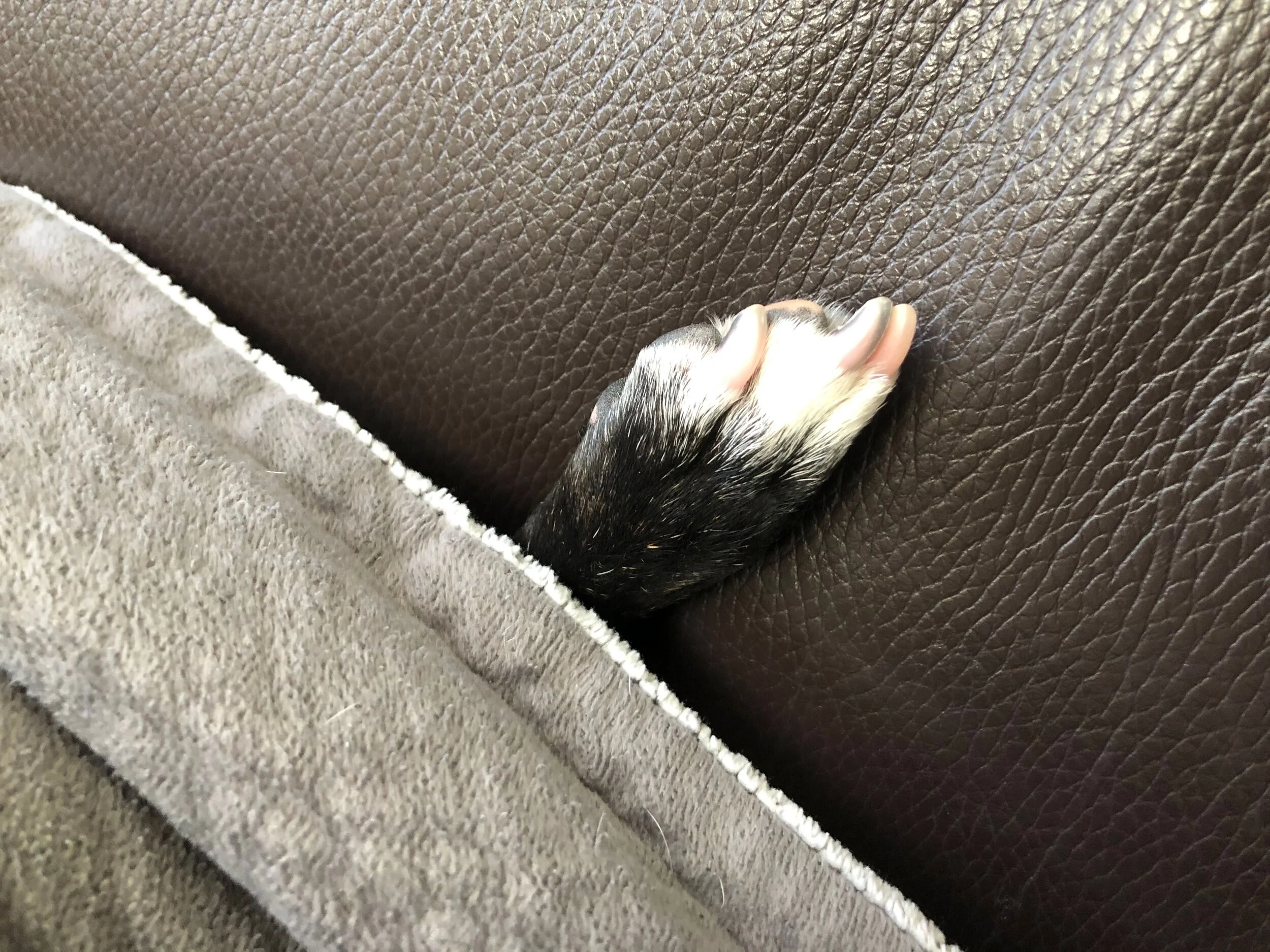There’s a world of difference between leaving home for a milk run or a weekend retreat — and leaving home forever.
Our Lilly, the Boston terrier, is keenly attuned to cues when we mobilize, though she’s become far less reactive to them over the years. At first, the scooping up of keys off the kitchen counter or lugging of suitcases out of the closet would elicit whines and feverish face-licking. More recently, we’ve noticed a faint wrinkling on her brow, but not much else.
That all changed about 10 weeks ago when we closed escrow on our new home in Portland, Oregon. Since then, Lilly has been subjected to clanging pots, toppling towers of clothes and packing tape screeching across the seams of cardboard boxes as my wife and I scrambled to make our move date.
Initially, Lilly seemed to weather these experiences well. However, as endless errands and service provider snafus shortened mommy’s and daddy’s fuses, her brow wrinkles deepened and the whining and licking resumed in earnest.
The topper came 15 minutes before we were set to pull away from the curb. Daddy fell three feet off the bed of the U-Haul truck onto the street and hit the back of his head. Mommy rushed down the stairs, crying. Lilly paced nervously when daddy was piled into the ambulance.
Though daddy escaped with a mild concussion (miracle!), he was dizzy and short-tempered for a few days. By the time we hit the road, stress was boiling over. When a simple miscommunication pushed mommy and daddy over the edge, Lilly began trembling.
Time out! The last thing either of us wanted was to traumatize our child. Time to press the reset button!
It’s not just human children who are jostled by their parents’ jousting. As trust can be built between beings, so it can be broken. While an animal’s trust in us is harder to break than trust between humans (consider all the pit bull fighters we’ve created who evolved into lovers when given loving homes), that trust can certainly be shaken. At too a high cost. Pets can become withdrawn, fearful and wary of humans in general. They may act out more with other pets, lose interest in favorite activities or develop health problems.
It can indeed be challenging to push the resent button when emotions run high. But, for our baby’s and our emotional and physical health, there is no other option. The fallout from raised voices and spiteful words can linger for years, perhaps for all time. Animals don’t have to understand our words to feel the emotions behind them; their ability to perceive communication transcends language.
Even I didn’t understand much of the venom spewed between my biological parents when I was seven. During their arguments — which raged for hours — I huddled under the dining room table with my games and fantasies. I was safe, but alone. Knowing that our girl had no intellectual retreat from my bombast, I feel especially remorseful.
I vow to never make her feel that way again.
At my wife’s brilliant suggestion, we’ve chosen a “reset’ word. When either one of us utters this word, all hostilities between us must immediately cease. Only after a mutually-agreeable pause can speech resume.
We chose the word hedgehog, a privately affectionate term which may just redirect us toward the real issue and help me see the comedy in my overblown righteousness.
Happily, we have not needed to utter our reset word since we adopted it last week. Hopefully this word will be uttered few times during our remaining years together. Lilly may come to understand its meaning by what follows: the silence within which compassion and healing are possible.

